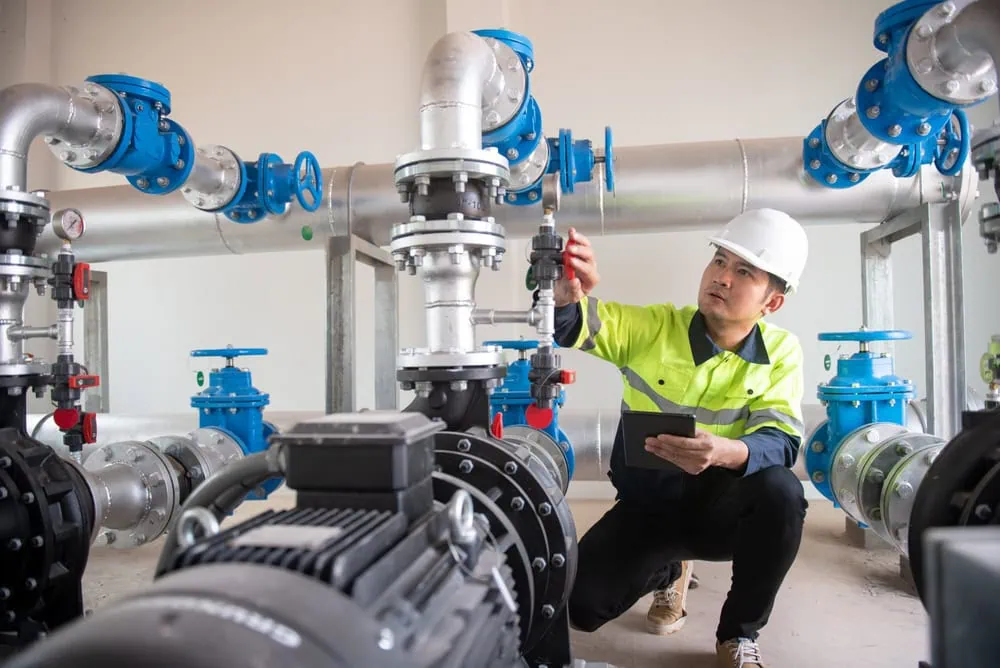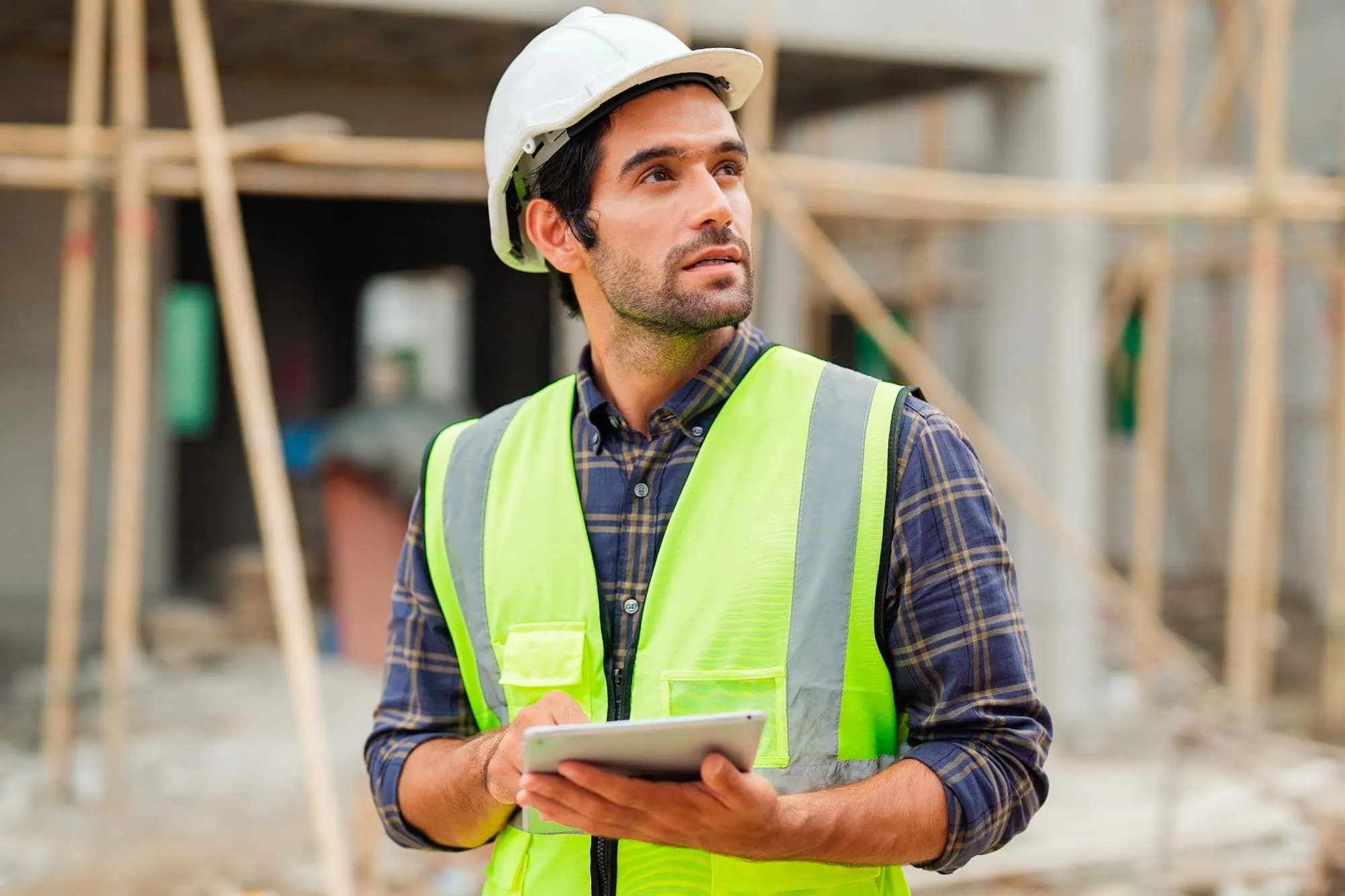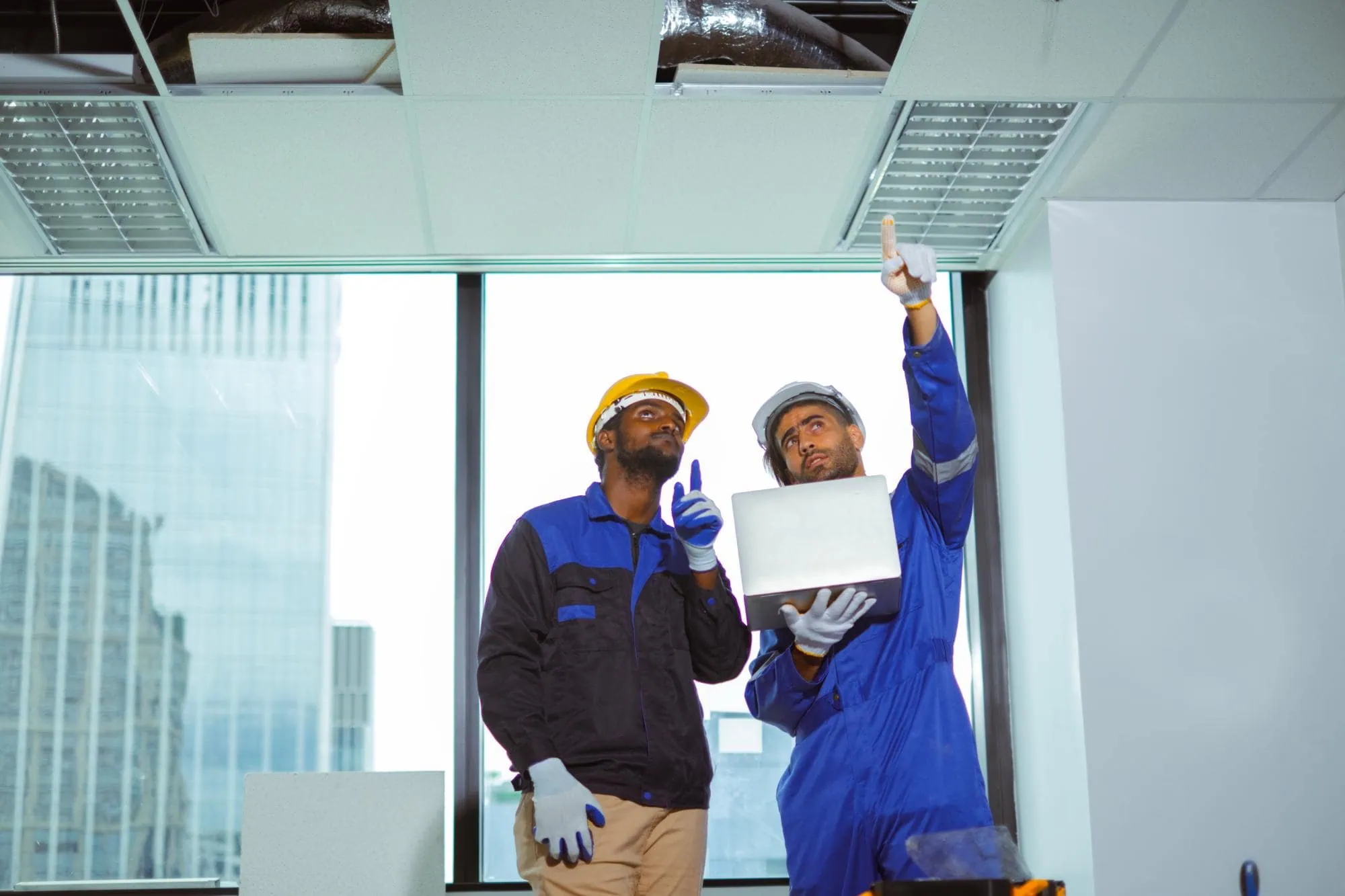Professional mechanical inspections in Manhattan from seasoned experts who understand NYC DOB requirements and deliver results on schedule.
Share:

Summary:
Mechanical inspections verify that your building’s systems comply with approved construction documents and NYC codes. These aren’t routine maintenance checks—they’re specialized evaluations required by the Department of Buildings for commercial projects.
Mechanical system work requires specific special and progress inspections per Building Code Chapter 17, performed during and at the end of construction. Your registered design professional determines which inspections are needed, but the building owner must hire the inspection agency.
The inspection process covers everything from HVAC installations to boiler systems and plumbing modifications. Each system gets evaluated against your approved plans to ensure safety, efficiency, and code compliance before you can move forward with your project.

Your HVAC system inspection goes far beyond checking if the equipment turns on. HVAC systems need verification to meet performance and safety standards, with special inspections required for certain mechanical systems including ventilation and exhaust systems.
NYC Energy Conservation Code requires commissioning for newly installed systems with heating capacity over 600,000 BTU/h or cooling capacity over 480,000 BTU/h. This means your inspector needs to understand not just mechanical compliance, but energy efficiency requirements too.
The inspection process includes verifying proper installation of ductwork, checking system controls and safety devices, and ensuring all components match your approved construction documents. We witness required tests and document everything for DOB compliance.
When systems don’t pass inspection, experienced professionals know exactly what needs correction and can guide you through the remediation process efficiently. This is where working with seasoned inspectors instead of recent graduates makes a real difference—we’ve seen these issues before and know how to resolve them quickly.
Commercial and mixed-use buildings require annual boiler inspections regardless of BTU capacity, with inspections conducted by qualified professionals. But installation inspections during construction involve different requirements than ongoing maintenance inspections.
DOB inspections are required at various stages of boiler work completion, including final inspection and sign-off. Our mechanical inspections cover the installation process, safety controls, venting systems, and compliance with both Building Code and Mechanical Code requirements.
The inspection process examines fuel connections, safety controls, proper clearances, and integration with building fire protection systems. Mechanical system work must comply with fire resistance requirements for piping and ductwork penetrations, plus fire protection system interconnections.
We understand the difference between residential and commercial boiler requirements. We know which systems need special attention in multi-story buildings and can identify potential issues before they become expensive problems. When you’re dealing with commercial-grade equipment, having inspectors who’ve worked on similar systems countless times gives you confidence the job will be done right the first time.
Want live answers?
Connect with a Broadway Inspections expert for fast, friendly support.
Many large agencies send inexperienced staff who are still learning, resulting in longer inspection times and potential issues that could have been caught earlier. When you’re working on a tight construction schedule, you can’t afford inspectors who need to figure things out on your dime.
Special inspection agency directors must ensure qualified inspectors are dispatched and that inspectors receive proper training and education to keep pace with developing technology. But there’s a big difference between meeting minimum qualifications and having real-world experience.
We spot problems immediately, know exactly what documentation is needed, and can communicate clearly with your construction team about any issues. We don’t need to call back to the office for guidance or spend extra time figuring out what we’re looking at.

When you call a large inspection agency, you typically get transferred between departments, wait for callbacks, and deal with project managers who’ve never been on your job site. Your project timeline doesn’t have room for that kind of communication breakdown.
Industry experts recommend that owners, general contractors, and special inspection agencies hold kickoff meetings to establish project expectations and timing, with regular communication ensuring inspection requirements are fulfilled smoothly. This only works when you can actually reach the people making decisions.
Direct communication means faster response times when you need to schedule inspections, immediate answers when questions come up, and real accountability from the people doing the work. You’re not dealing with a corporate call center—you’re working with professionals who understand your project and care about getting it done right.
The difference becomes obvious when issues arise during inspection. Instead of waiting for messages to filter through multiple layers of management, you get immediate feedback and solutions from the inspector who actually knows your project. This direct approach keeps your construction schedule on track and eliminates the frustration of working with unresponsive agencies.
Different classes of special inspection agencies have varying scopes of authority, with Class 3 agencies typically limited to smaller projects like one-, two-, or three-family dwellings. Commercial projects require agencies with broader experience and Class 1 or Class 2 capabilities.
Commercial mechanical systems involve complexities that residential inspectors rarely encounter. Multi-zone HVAC systems, commercial-grade boilers, complex ductwork routing, and integration with fire protection systems all require specialized knowledge that comes from years of working on similar projects.
Commercial boiler systems differ from residential ones in terms of scale, complexity, and purpose, designed to meet higher heating demands with more extensive piping and larger heating capacities. We understand these differences and know what to look for in commercial installations.
When you’re working with architects and construction managers on commercial projects, you need an inspection agency that speaks your language and understands your challenges. Agencies focused primarily on residential work might meet basic requirements, but they lack the commercial expertise that makes inspections efficient and thorough. Our commercial focus means we understand your project type, know the common issues that arise, and can provide solutions that actually work in commercial environments.
Your Manhattan commercial project deserves mechanical inspections from professionals who understand both the technical requirements and the business realities of construction timelines. The difference between working with experienced inspectors and inexperienced staff can mean the difference between smooth project completion and costly delays.
When choosing a special inspection agency, you’re selecting a partner who will play a crucial role in your project’s success, with the difference between experienced professionals and inexperienced staff affecting project closeout. Direct communication, commercial expertise, and real industry experience aren’t luxuries—they’re necessities for keeping your project on schedule.
For architects and construction managers who value responsive service and thorough inspections, Broadway Inspections brings 17 years of experience directly to your Manhattan project. When your mechanical systems need inspection, experience and communication make all the difference.
Article details:
Share:
Continue learning:
Special Inspections You Can Rely On
Our team delivers thorough special inspections and tenant protection plan inspections, guaranteeing the highest standards for every project.
Broadway Inspections
Company
Support
Useful Links